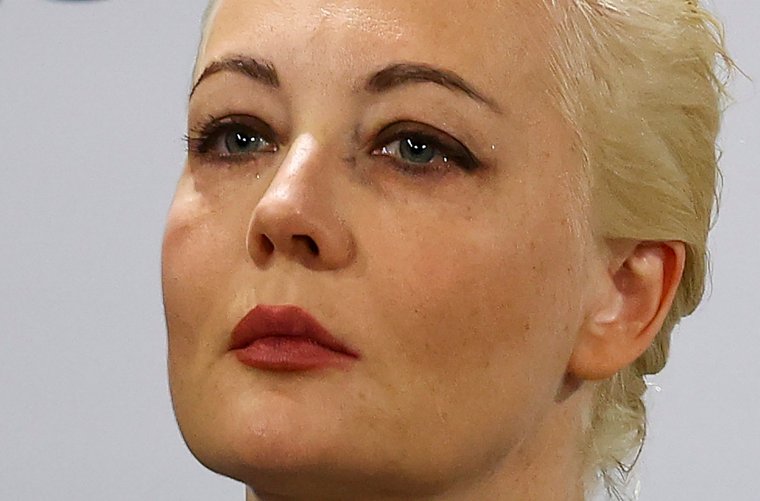Attacks on polling stations and campaigns against Vladimir Putin marked the beginning of Russia’s election on Friday, as regime opponents sought to undermine the President before his inevitable victory.
A Molotov cocktail was launched at a polling station in St Petersburg, local news site Fontanka reported, while Russian state investigators in Moscow said they had opened a criminal case against a woman who poured green dye into a ballot box to try to disrupt voting.
The Anti-Corruption Foundation, founded by late opposition leader Alexei Navalny, has organised an event targeting polling stations.
The “Noon Against Putin” initiative will see dissidents gather at polling stations at 12pm on Sunday and cast votes for alternative candidates.
On the eve of the vote, Navalny’s team published the dissident’s final message before his death in an Arctic prison last month.
“No matter how often I say it doesn’t matter, mathematically or politically, whom you vote for, you still find yourself in the voting booth with a pen hovering over the ballot. Eventually, you must decide where to place your mark,” it read.
Mr Putin is assured of securing a fifth term in power that will keep him in office until 2030, with all significant opposition figures banned from standing, in exile, or dead.
His approval rating is 86 per cent, according to Levada Center pollsters.
Yulia Navalnaya, Alexei Navalny’s widow, urged western countries not to recognise Mr Putin as Russia’s legitimate leader.
“Look at Putin as a mafia boss and you will understand how to punish him and hasten his end. Status is very important to criminal leaders — both within their gangs and in the outside world,” she wrote in The Washington Post.

Participation in Noon Against Putin carries the threat of imprisonment. On Thursday evening, the Moscow Prosecutor’s Office issued a stark warning to potential dissidents.
“Organising and participating in these mass events are therefore punishable in accordance with the current legislation of the Russian federation,” the statement read.
It went on to say the “illegal actions” could hamper citizens’ ability to “freely exercise their electoral rights and the work of election commissions”, a crime punishable by up to five years in prison.
In an effort to dissuade voters from participating in Noon Before Putin, messages were sent this week via email and Telegram informing the public the protest had been cancelled, while celebrations have been planned to coincide with the event.
Russian authorities are reportedly deploying various tactics to entice voters at the polls, such as serving pancakes and holding concerts at polling stations.
Kremlin officials have acknowledged that there is little doubt over the outcome of the election.
Dmitry Peskov, Putin’s spokesman, has described the campaigns and constant state TV coverage as a “costly” bureaucratic necessity when it is “obvious that Putin will be re-elected”.
But Sergey Radchenko, professor at the Johns Hopkins School of Advanced International Studies, said despite the apparent charade of the election, the visibility of the mandate is still important.
“Even the Soviet Union had elections, although there were one candidate elections, but still, they have them because they want to show the connection between the people and the regime,” he told i.
“And this is why [Putin] has those things. One thing it does show is that even in dictatorial authoritarian societies, the idea of people’s power still matters. The idea of legitimacy stemming from the people still matters.”
Daniil Ken, head of the Teachers Alliance trade union, which is affiliated to the Navalny network, said Putin is “more confident and strong than ever” in terms of winning the election, but the demonstration “destroys the propaganda myth that the whole country is for Putin”.
“There are no opponents, no observers, and forceful repression reduces the risks of protests as much as possible. But at the same time, he is vulnerable to symbolic actions,” he added.
“We saw this with the example of queues to subscribe to [would-be opposition candidate Boris] Nadezhdin, or queues to Navalny’s grave; now such a relatively safe, but symbolically very understandable action will be a gathering of people at polling stations at the same time – noon on March 17th.
“Opponents of Putin and the war get the opportunity to feel how many of them there are. This is changing the mood in the country.”


Maurice Saatchi: I used to adore capitalism – then I had lunch with Margaret Thatcher